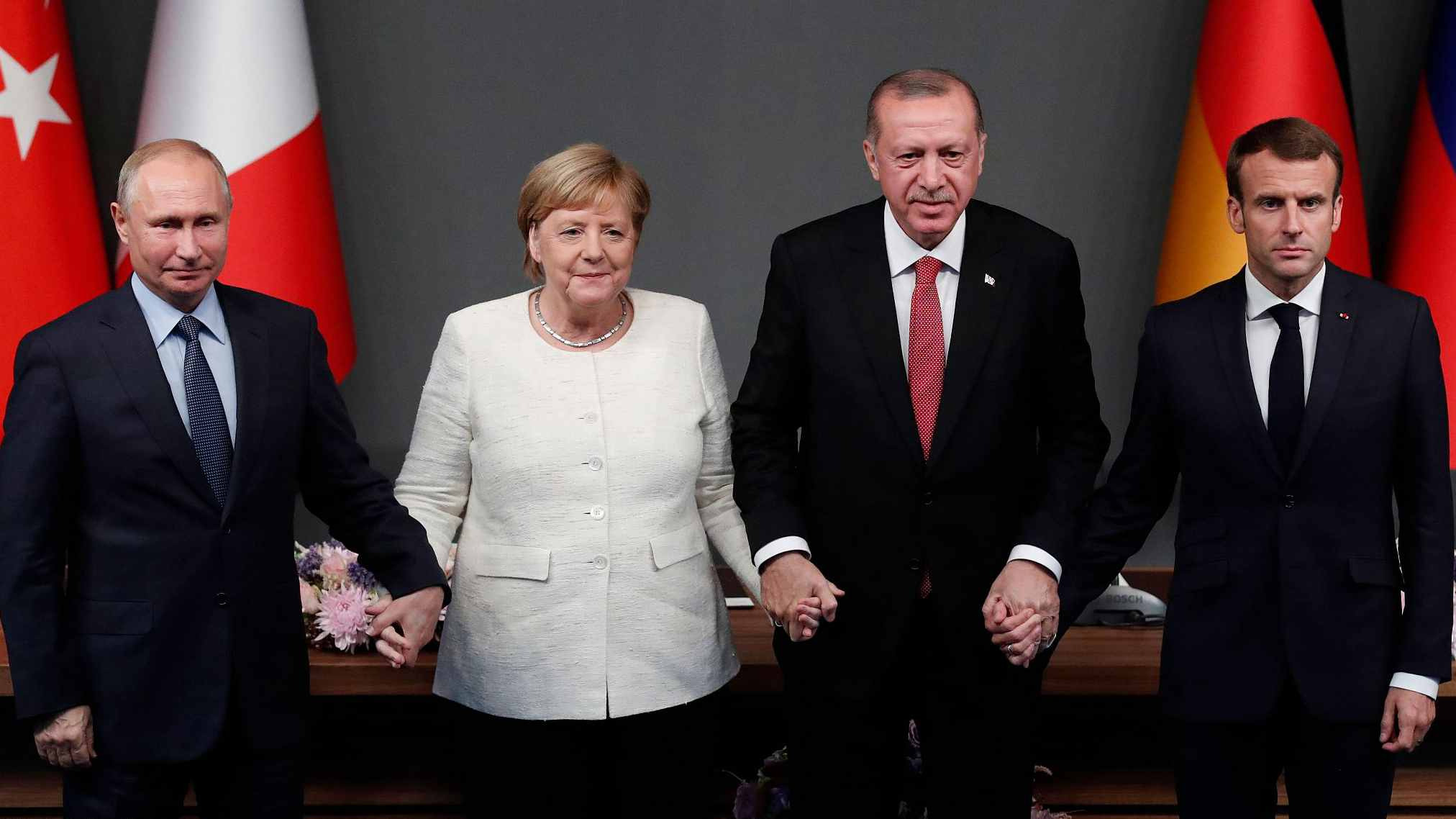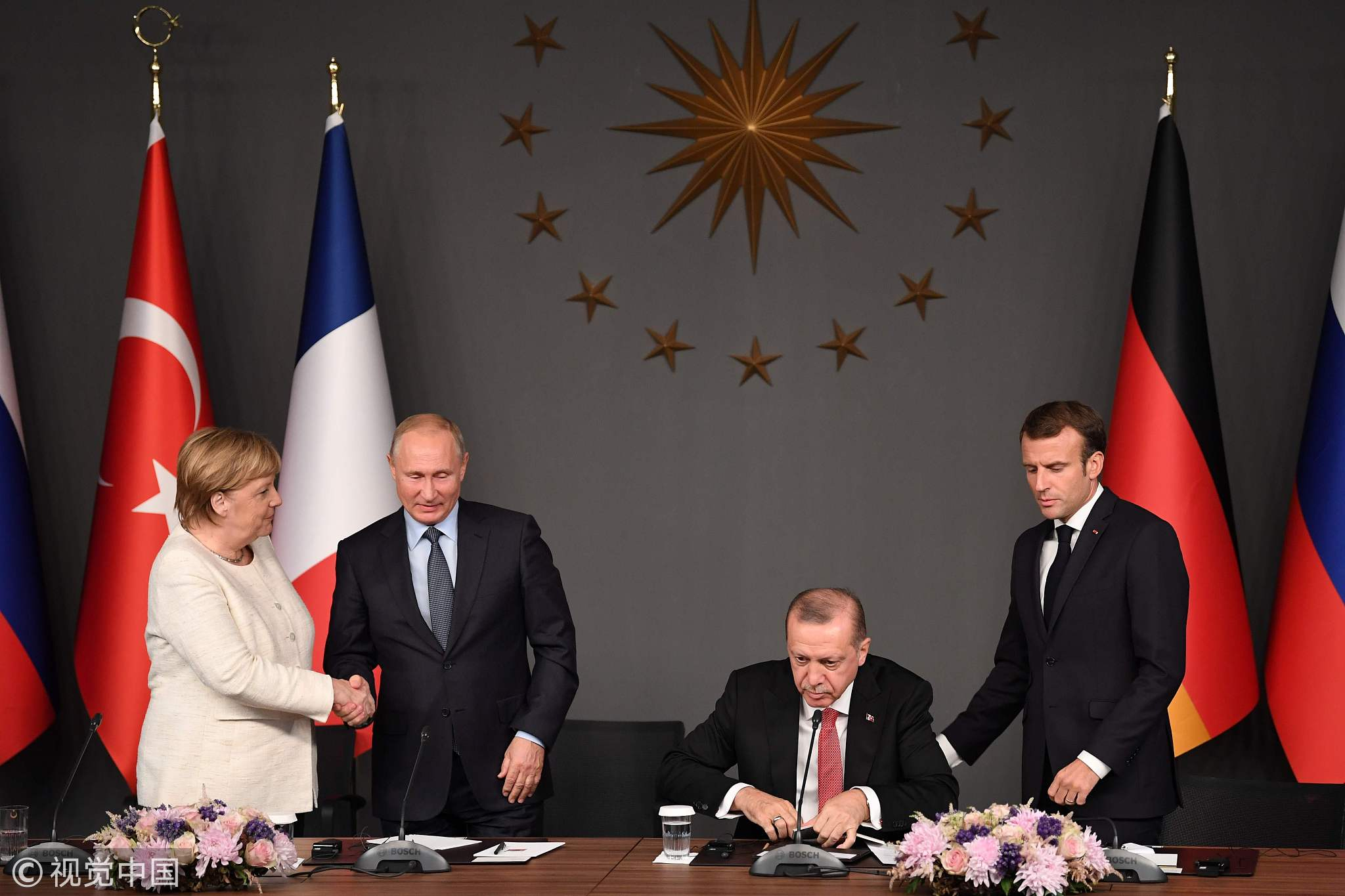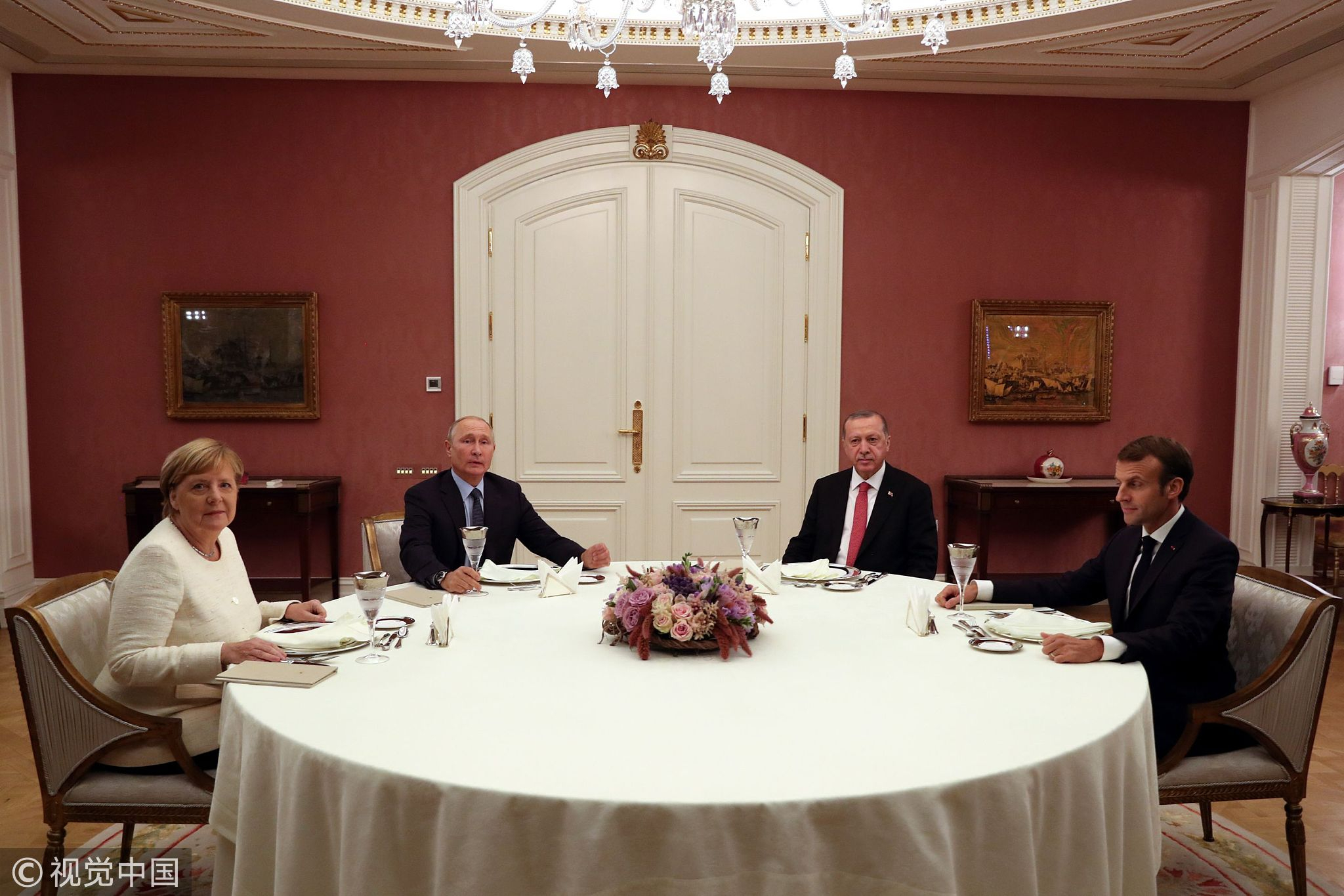
Politics
08:30, 28-Oct-2018
Russia, Germany, France and Turkey call for lasting ceasefire, constitutional meeting for Syria
Updated
08:09, 31-Oct-2018
By Michal Bardavid
02:19

A path forward for Syria. That's what the leaders of Turkey, Germany, France, and Russia spent Saturday discussing. The remaining rebel-held province of Idlib continues to be of concern, even as leaders look for a lasting political solution to end Syria's seven-plus years of war.
Turkish President Recep Tayyip Erdogan hosted the four-way summit on Syria in Istanbul. German Chancellor Angela Merkel, Russian President Vladimir Putin and French President Emmanuel Macron attended as did the UN Special Envoy for Syria, Staffan de Mistura.

Russian President Vladimir Putin (2nd L) and German Chancellor Angela Merkel (L) shake hands after a conference with Turkish President Recep Tayyip Erdogan (2nd R) and French President Emmanuel Macron (R) during the summit at Vahdettin Mansion in Istanbul, October 27, 2018. /VCG Photo
Russian President Vladimir Putin (2nd L) and German Chancellor Angela Merkel (L) shake hands after a conference with Turkish President Recep Tayyip Erdogan (2nd R) and French President Emmanuel Macron (R) during the summit at Vahdettin Mansion in Istanbul, October 27, 2018. /VCG Photo
The main aim of the meeting was to discuss a road map for a political solution to the Syrian conflict.
Turkey and Russia have already been working very closely on Syria; the two brokered a deal in September regarding Idlib province that prevented a full blown assault in the area.
Ankara and Moscow had agreed for radical groups to withdraw and for heavy weapons to be pulled out of a demilitarized zone in Idlib - a process that is still underway.
All of the leaders voiced support for a continued ceasefire in the area and hailed the deal for preventing a new humanitarian crisis.
Putin, however, made it clear that Russia would take action if any radical groups engage in armed provocations.
Middle East expert and faculty member at the Istanbul Aydin University, Naim Baburoglu said, "if radical groups don't surrender their heavy weapons in the future or harass Russia's air and military bases near Idlib such as the Hmeymim base, then Russia could carry out target specific operations. Then Turkey would not block these operations."

(From L) German Chancellor Angela Merkel, Russian President Vladimir Putin, Turkish President Recep Tayyip Erdogan and French President Emmanuel Macron sit for a dinner as part of the summit at Vahdettin Mansion in Istanbul, October 27, 2018. /VCG Photo
(From L) German Chancellor Angela Merkel, Russian President Vladimir Putin, Turkish President Recep Tayyip Erdogan and French President Emmanuel Macron sit for a dinner as part of the summit at Vahdettin Mansion in Istanbul, October 27, 2018. /VCG Photo
Syrian refugees were also on the agenda.
Erdogan called on the European Union (EU) for more support and reiterated his expectation from the EU to fulfill its promises on fair burden-sharing.
He called on other countries to increase their support for the Syrian people's needs, bearing in mind that winter is coming.
Especially for Germany and France, the prevention of a new refugee crisis was also on the agenda.
In 2016, Turkey signed a migrant deal with the EU to stop the flow of refugees crossing from Turkey into European countries. Turkish officials said the number of attempts made by sea has dropped significantly.
Leaders also called for the establishment of a committee by the end of this year that would create Syria's post-war constitution under the supervision of the UN.
Merkel stressed that "this is necessary so that this political process can successfully begin and at the end of it free elections that are accessible to all Syrians, including those in the diaspora, must be held."
Macron emphasized the leaders' opposition to the use of chemical weapons, which was also spelled out in the joint statement. And Macron said cooperation among all involved parties will be vital, stressing that they "rely on Russia to put pressure on the Syrian regime."
Regarding the future of Syrian President Bashar Al Assad, Erdogan said it would be up to the people of Syria to decide his fate.
The leaders also expressed their commitment to the sovereignty and territorial integrity of Syria while stating the need to create the conditions for refugees to safely and voluntarily return to their country.

SITEMAP
Copyright © 2018 CGTN. Beijing ICP prepared NO.16065310-3
Copyright © 2018 CGTN. Beijing ICP prepared NO.16065310-3